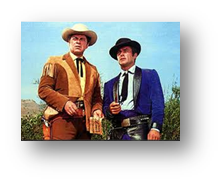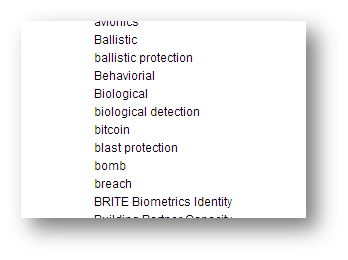Tamir Rice and Ethan Couch: A Study in Injustice and the Case for Bitcoin
There is no society in the history of the world that has gotten social and economic justice right. Really, how could there be? Invariably some people are going to get better treatment and a more than their share of the money or resources. Often enough, the disparity will be because the person getting more
 is really more talented, smarter, more well-liked–that is to say, deserving. Sometimes the person getting less does so because they don’t try as hard, aren’t as talented, or may not even really want any more than they are taking.
is really more talented, smarter, more well-liked–that is to say, deserving. Sometimes the person getting less does so because they don’t try as hard, aren’t as talented, or may not even really want any more than they are taking.
More often than that, though, some people get more because they are bigger and stronger and can just take more and tell the others to shut up. In modern society, bigger and stronger usually just means wealthier and more privileged. There is no real way to stop the rich and powerful from getting their way, but if the scales tip too much and society becomes too unjust, then that sets the stage for unrest, resistance, and revolution.
Right now in the States the level of disparity can be seen by comparing the cases of Tamir Rice, a 12-year-old, poor, black kid in Cleveland who was shot by police while playing with a toy pistol in a park near his home. According to video, he was shot within two seconds of the police cruiser rolling up. Video also confirms that neither officer gave the boy any medical assistance after ascertaining the boy was down and the gun was a toy–it took an FBI agent who was coincidentally in the area to do that four minutes later. Police did however put Rice’s mother in handcuffs and tell her that she would be arrested if she didn’t calm down when informed that her son had been shot and tackle his sister when she came on the scene.
Months later, a Grand Jury, the system we use to determine if there is enough evidence to bring charges in a case, have declined to bring charges against the officers. This even though it was shown that one of the officers had been hired by the Cleveland PD without checking his service record with his previous police department job, which had rated him as unstable and not fit for police work. One more thing that has become public knowledge in recent years is that Grand Juries are a prosecutor’s playground where they have broad latitude in how much, and in what light, they present evidence. It turns out that the Grand Jury system is less an independent citizen review of evidence and much more a prosecutor’s rubber stamp on whether or not he wishes to put a case before a judge.
Now contrast all this with the case of Ethan Couch, a 16-year-old scion of a wealthy family who plowed into a person standing next to his broken car and three others who had stopped to help him on the shoulder of a Texas highway. When Couch was arrested, he had three times the legal alcohol limit in his blood. He was rightly charged in the four deaths and went on trial where the defense argued that the poor boy was a victim of affluenza, a rare malady wherein the victim is raised in conditions of wealth and privilege so extreme that he has never developed the ability to tell the difference between right and wrong. The judge in the case accepted this amazing argument and gave the boy ten years’ probation. And the reason I bring it up today is that it hit the news that Couch had fled the country with his mother since probation was too harsh a punishment for the deaths of four innocents.
I’m not saying necessarily that Couch should have gone to jail. I am saying certainly that Rice shouldn’t have gone to the grave. But what I want to say more than anything else is that Rice was given a mere two seconds to account for all the actual hardships, deprivations and injustices that might he might have faced, and who had done nothing more than play with a toy in a park, while Couch who killed four people while acting recklessly got a proverbial slap-on-the-wrist which he seems to have considered too much to bear.
The reason we don’t have things like honor killings in civilized countries is that the people voluntarily give up the right to take personal revenge to the government which is to mete out justice fairly and without bias. One of government’s chief reasons to be is to keep the playing field as even as possible. Justice should work for the poor and rich alike. If a thug with a gun goes to jail for robbing someone on the street, so should the investment banker who robs someone with a click of a key.
When the ability to people to get even the basics of an education, even a minimally sustaining job, and even a smattering of justice in the face of the law becomes too unbalanced, then the whole society becomes unbalanced and the scene is set for something to break.
Now how does all of this tie into Bitcoin, you are rightly asking. The answer is that Bitcoin is an idea born out of rising social and economic injustices we are seeing in the world. When Bitcoin reaches its full potential, it will be the second cornerstone of the decentralized society that will even out, if not eliminate, injustices like we see with Tamir Rice and Ethan Couch.
We’ve seen already the decentralization of information with the Internet. This was a mixed blessing to be sure. On the one hand, it is easier now to at a moment research anything you have a passing interest in. On the other, the Internet is filled with inaccuracies and lies. Unfortunately, this has led many to fall into information bubbles where they seek out only things they believe and never have to have their facts corrected. But, as time goes on I expect that education will focus more clearly on critical thinking and the need for fact checking.
With Bitcoin, we are seeing the start of the decentralization of money, where people will be able to take control back of their finances and cease to need to use banks or other financial institutions. Bitcoin is not perfect, it is still in development, but when its moment hits, I believe that we are going to see it succeed beyond the possibility for any government to control or reign it in without crippling its economy and impoverishing its people.
Already we are starting to see projects to decentralize organizations–to have them run programmatically rather than at the whim of a CEO. When that happens, the rights of the shareholders and stakeholders alike will be guaranteed mathematically. From there, it would be a single step further to decentralize governmental services to the point where prosecutors, grand juries, and judges let their own prejudices and biases get in the way of an impartial meting out of the law. In that world both Tamir Rice and the four innocents on the side of the road might all still be dead, but the police officer and the affluenzic teen might be sharing a cell together.
And the final step, how we really run our government could be wrest from the hands of the rich and powerful, most of whom come from families infected by affluenza or those who willingly infected themselves in their quest to be rich and powerful.
Now the picture I’ve painted here is not at all certain and there would be a lot of problems bringing it into reality. But the Bitcoin revolution might really be the beginnings of the next period of enlightenment. The alternative, I fear, might just be a repeat of the French Revolution.

